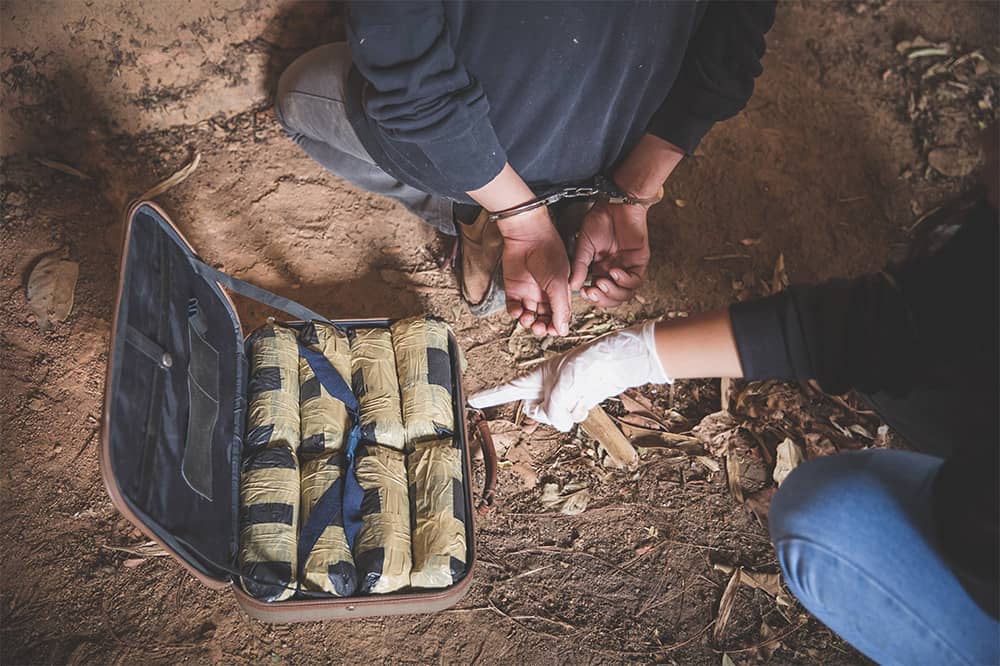How to Know if Police Are Investigating You for Drugs in Cleveland, OH

You suspect that you’re being investigated by the police for a drug crime, and your mind is reeling. It’s a terrifying situation to find yourself in, one that can shake you to your core. I know this because I’ve sat across from countless clients who have been in your shoes. They come to me filled with uncertainty, fear, and a need for answers.
And while every case is different, there are common threads that run through them all – the weight of not knowing what’s to come, the fear of how this could impact your life, and the overwhelming desire to protect yourself and your future.
In my years as a criminal defense attorney, I’ve learned that the best way to combat those feelings is with knowledge and decisive action. That’s why in this article I’m sharing clear, actionable information on how to recognize the signs that you’re under investigation, understanding the tactics the police may use against you, and most importantly, steps you can take to protect yourself.
Common Signs Police May Be Investigating You for Drugs
When you’re worried the police might be investigating you for drug crimes, it’s easy to get paranoid and start seeing signs everywhere. But there are some concrete red flags that can signal you’re under investigation.
Increased Police Presence Near Your Home or Workplace
One potential indicator is a sudden uptick in police presence around the places you regularly visit. If you’re noticing more cop cars than usual driving past your house or parking near your job, unmarked vehicles loitering nearby, or officers on foot spending a lot of time in your area, that can be a sign that something’s up. It doesn’t necessarily mean you’re the target, but it’s definitely noteworthy, especially if you’re spotting other signs too.
You Notice Signs of Surveillance
Surveillance is a common tactic police use to gather evidence during drug investigations. So if you start feeling like you’re being watched or followed, pay attention. Are unfamiliar vehicles parking outside your home or work for extended periods? Have you noticed suspicious people appearing to observe your comings and goings or taking photos of your home or car? These can all be indicators that you’re under surveillance.
Police Contact You or People You Know
Another major sign is if the police start contacting you or people in your circle. Have officers shown up at your door or work wanting to ask about your activities or associations? Have cops been reaching out to your family, friends, colleagues, or neighbors to question them about you? Do these interactions feel like the police are fishing for information, especially about any potential ties to drugs? If so, there’s a chance you’re under investigation.
Police Tactics Used in Drug Investigations
When the police are investigating someone for drug offenses, they’ll use a range of tactics to collect evidence and build a case. Knowing what to expect can help you spot the signs and protect your rights.
Physical and Electronic Surveillance
As we mentioned, surveillance is a go-to tactic for cops in drug investigations. They might physically tail you to track your routines and associations. They could also use electronic surveillance like tapping your phone, reading your texts and emails, combing through your internet history, or even planting hidden cameras or GPS devices on your car.
Informants and Undercover Officers
Another way the police gather evidence is by getting people to inform on you or inserting undercover officers into your social circle. Informants are often people facing their own drug charges who trade information for leniency. Undercover cops may try to get close to you to learn about any drug activities. So if a new “friend” starts taking a sudden keen interest in your business or who you know, be very cautious. They might be working for the police.
Obtaining Search Warrants
If the police collect enough evidence during their investigation, the next step is often to get a search warrant. Under Ohio law (Ohio Revised Code Section 2933.21), search warrants have to be issued by a judge, and they have to be based on probable cause from the evidence gathered.
A search warrant gives the police authority to search specific places, like your home, car, phone or computer, for evidence of the suspected drug crime. If the cops show up with a warrant, you have to let them in, but be sure to tell them you want to call your lawyer right away. The presence of a search warrant is a sign the investigation is escalating.
Proactive Steps to Take if You Suspect an Investigation
If you think the police might be investigating you for drug crimes, taking swift, smart action to protect yourself is crucial.
Know and Assert Your Rights
First things first, know your constitutional rights when dealing with the police. The Fourth Amendment protects you against unreasonable searches and seizures.
That means the police can’t search your property without either a warrant or your consent in most cases. And the Fifth Amendment gives you the right to remain silent. You don’t have to answer police questions, and it’s usually in your best interest not to. Politely decline to talk and ask for a lawyer.
If the police do have a search warrant, don’t physically resist them – you could catch additional charges. But do make it clear that you don’t agree to any searches beyond what the warrant specifies.
Secure Experienced Legal Representation
If you suspect you’re under investigation, consulting with an experienced criminal defense attorney needs to be your top priority. A lawyer can intervene with the police for you, advise you on the best course of action, and start working on your defense right away.
Look for an attorney who has substantial experience in Ohio drug cases and knows the relevant laws inside and out. Be completely honest with your lawyer about your situation, but don’t discuss the details with anyone else. Talking to the wrong people could come back to bite you.
Be Mindful of Your Activities and Associations
Finally, if you think the cops are investigating you, be incredibly mindful of what you do and who you associate with. Avoid anyone you know to be involved with drugs and stay away from places linked to drug activity.
Be very careful about what you discuss via phone, in texts, or online. Those communications could be monitored. Even if you haven’t broken the law, just being connected to people involved with drugs can put a target on your back. Distancing yourself can help show you’re not caught up in illegal activities.
Do You Think You’re Under Investigation for Drugs? We Can Help.
Realizing you might be under police investigation for drugs is a terrifying position to be in. But by knowing the warning signs, understanding police tactics, and taking decisive action to assert your rights, you can navigate the situation and start building your defense.
If you think you’re being investigated for drug crimes in Ohio, don’t wait to get help. Contact the criminal defense team at Botnick Law Firm for a confidential case review today. We know what it takes to protect your rights and fight for your future when drug charges are on the line.



